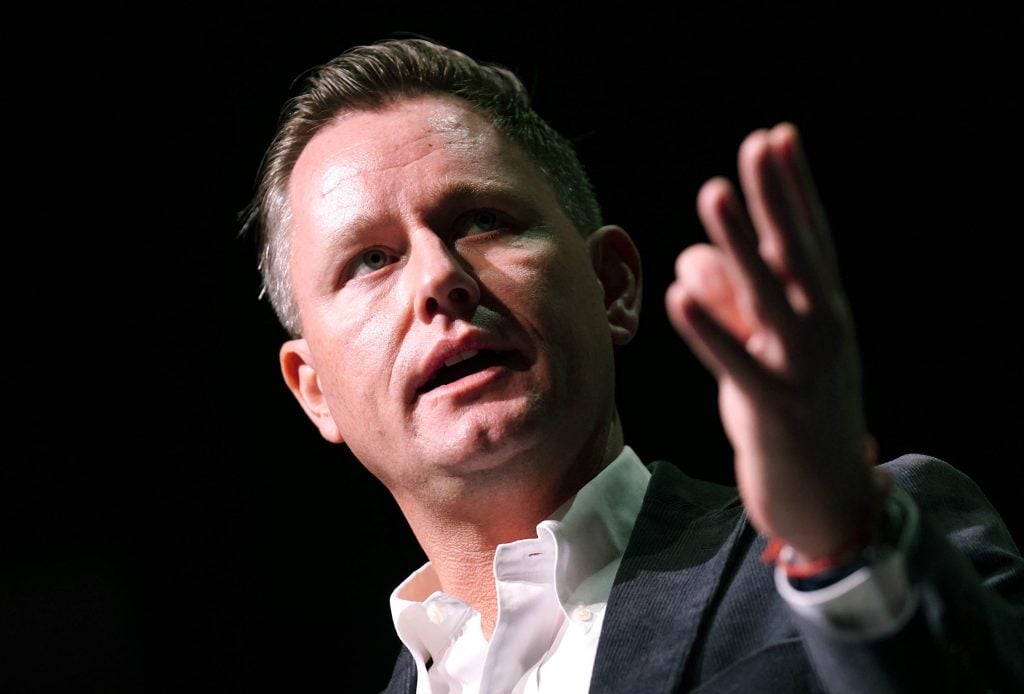
Photos by Ralph Freso
With a tense presidential election two weeks away, Dr. Michael Hahn pleaded for kind and unselfish acts.
“There’s no doubt that we’re living in divided times,” Hahn told an Ethington Theatre audience as part of Grand Canyon University's One Foundation Speaker Series. “Even in these challenging times, we need more compassion, courage, gratitude, honesty, hope, humility, integrity, justice, kindness, resilience and wisdom – not less.
“University character education done well is not the exclusive work of any civic, cultural, educational, religious or social community. University character education welcomes diverse voices, traditions and perspectives and helps students clarify their own values and commitments.”
Hahn, assistant dean of the School of Education at St. Mary’s University of Minnesota, spoke about “What Has Athens to Do with Jerusalem? Why Ought a Faith-Based University Pursue Character Education?” It was followed by a question-and-answer session featuring GCU College of Theology professors Dan Kemp and Lanell Mason and College of Education professors Katie Kosier and Thomas Christner.
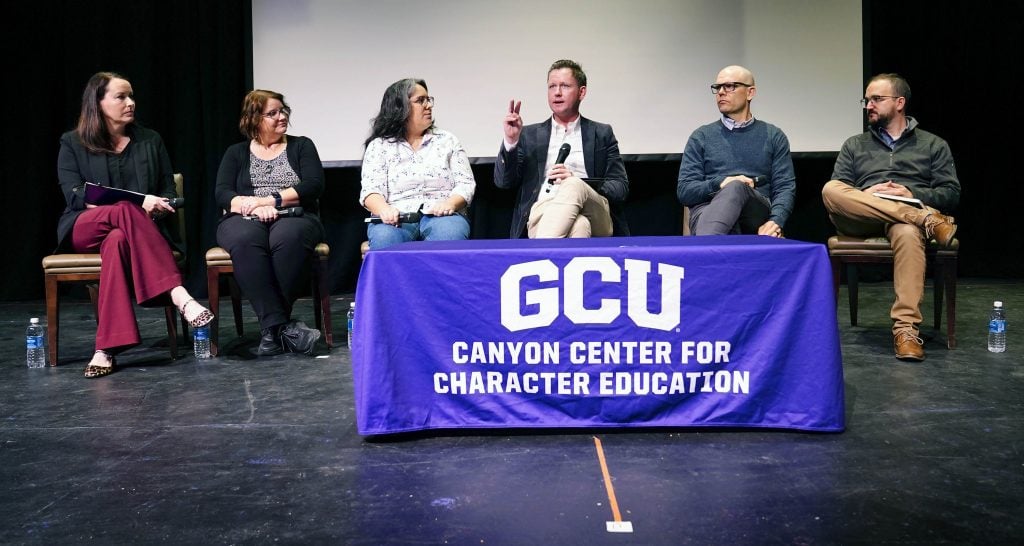
The event was co-hosted by the College of Theology and the Canyon Center for Character Education, with CCCE program director Emily Farkas serving as moderator.
During Hahn’s talk, he touched on the writings and beliefs of Greek philosopher Aristotle and how they compared and contrasted with Christian character education.
The word virtue, according to Hahn, unfortunately has been on a steady decline since the 1800s and can sound stuffy.
“Personally, I like the word virtue,” Hahn said. “ Virtues are positive character traits. According to Aristotle, there are intellectual virtues, such as wisdom, prudence. There are moral virtues, such as temperance and courage. And civil virtues, such as justice and respect.
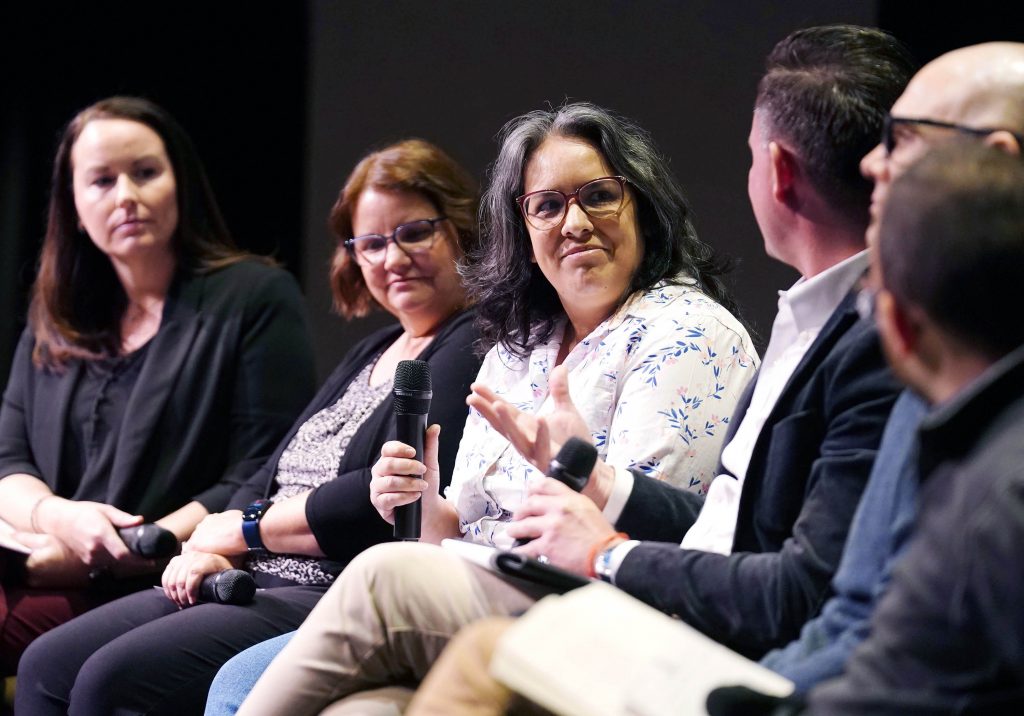
“There’s no one definitive list of virtues, but you can add humility, open mindedness and generosity. They’ve enabled us to act in an authentically human way.”
Hahn added that virtue could be stuck between two vices.
“Loyalty to friends, or honesty to parents?” Hahn said. “Both loyalty and honesty are virtues. But they can come in conflict.”
Hahn, citing Aristotle, stressed we flourish as human beings by practicing the virtues, and that we learn virtue through regular practice.
Hahn shared a story about a friend who was disappointed to learn he couldn’t shoot photos at the Sistine Chapel, only to see another American father use his 17-year-old son as a shield in a crowded room so he could take photos without security guards being able to see him.
“The message of the father to son was, ‘It’s OK to cheat. Just don’t get caught.’ “How does the father behave in other facets of life?”
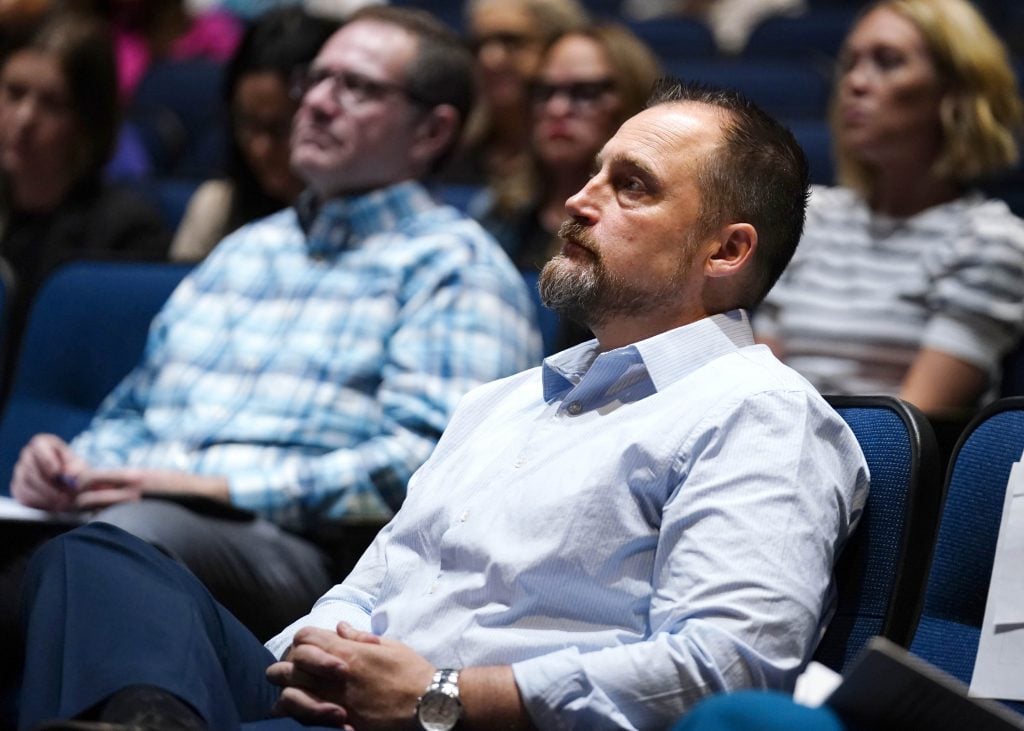
Hahn believes more often it’s the small moments of life when the stakes are low, perhaps when no one is looking that we develop habits and character dispositions that become vital when the stakes rise.
“All virtues are transformed from Christian perspective,” Hahn said. ”Without love, justice turns to cruelty. Without hope, courage turns to blind despair. Without faith, this worldly wisdom is foolishness to God.”
Jesus loved to teach, “and a Christian university should teach as Jesus did," he said.
Hahn elaborated on a quick project performed with college students that illustrated the difficulty of fulfilling human flourishing.
He asked his students to write everything that would make them happy. During the 10-minute project, the students had no limits, but they had to be specific.
After the lists were completed, Hahn asked students to raise their hands if they wanted the right to add or update their list in the future.
Almost every student raised their hand. That revealed they already knew they didn’t fully know what they wanted now.
“Someone said that orchids, which are bright and beautiful, giving it to someone as a gift, it’s punishment,” Hahn said. “You’re supposed to water it less. Ice cubes work.
“For humans, it’s more difficult to see whether they’re flourishing. There are visible status markers of flourishing. People can have all that and still not be flourishing, and vice versa.”
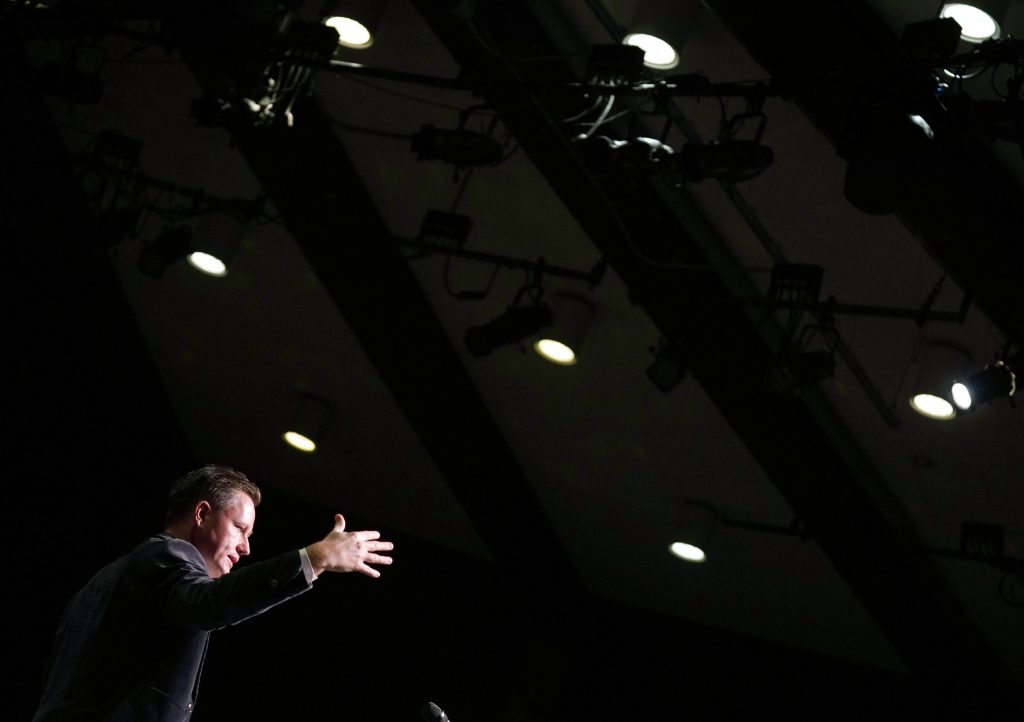
Hahn admitted he was extremely nervous about teaching in the virtual world until he attended a conference in Seattle in which Dan Fitzpatrick, author of several AI-related books, quelled fears.
“It replaces tasks but not educators,” said Hahn, espousing Fitzpatrick’s positive thoughts on AI. “It will free us up to do the things that are truly human that AI mimics from us. It’s not thinking in a human way. It’s a probability issue. It will replace our tasks but not our thinking.”
Hahn said the goal of the teacher is that, at every age, at a certain point, the student “comes alongside, and you’re looking out together at the same perspective.”
The support for students has become more visual over the last decades, where universities are now promoting their education through testimonies by students on their websites.
“That’s great,” Hahn said. “It goes back to Aristotle’s understanding of friendships. We learn from each other.”
GCU News Senior Writer Mark Gonzales can be reached at [email protected]



































































